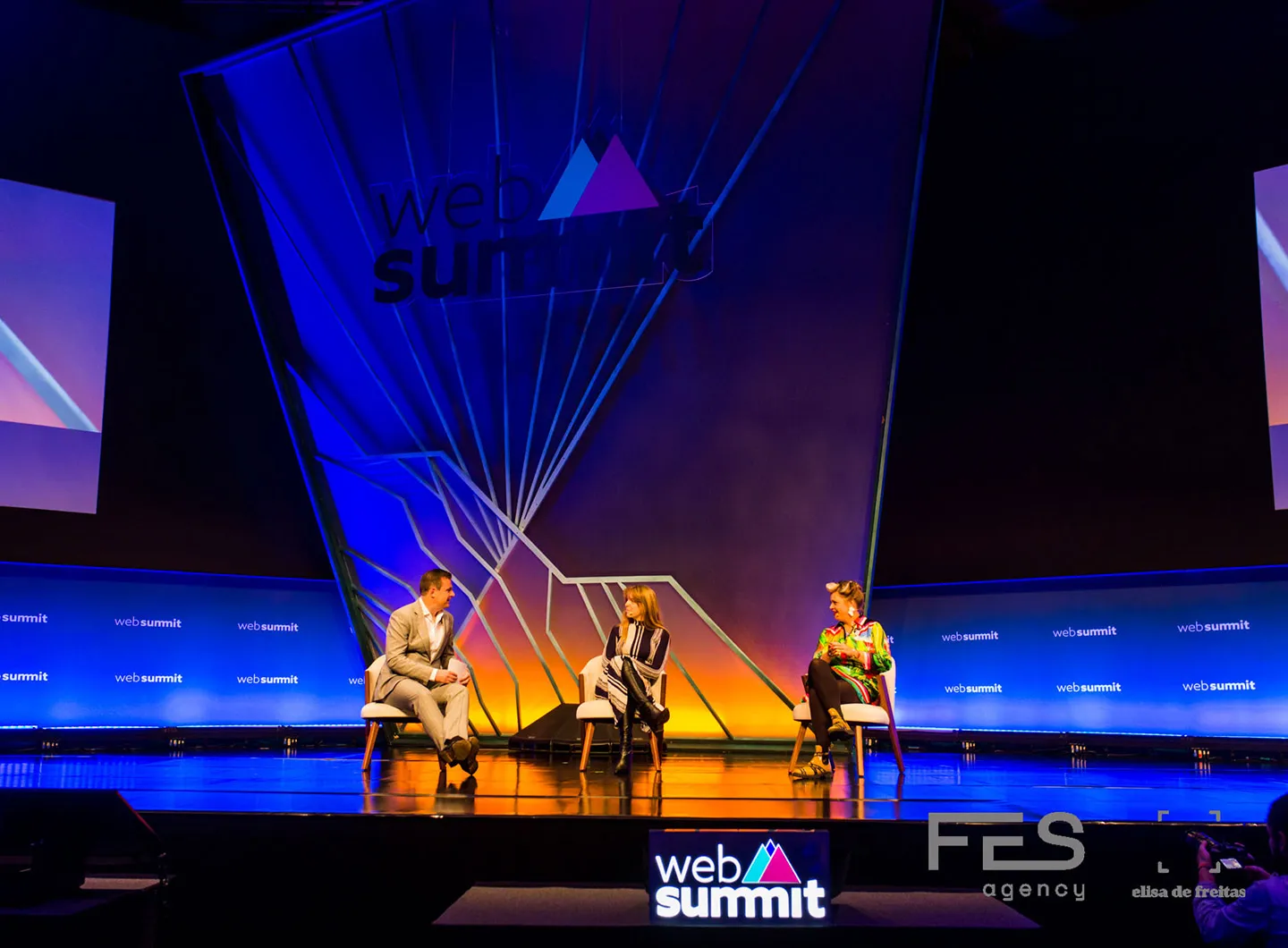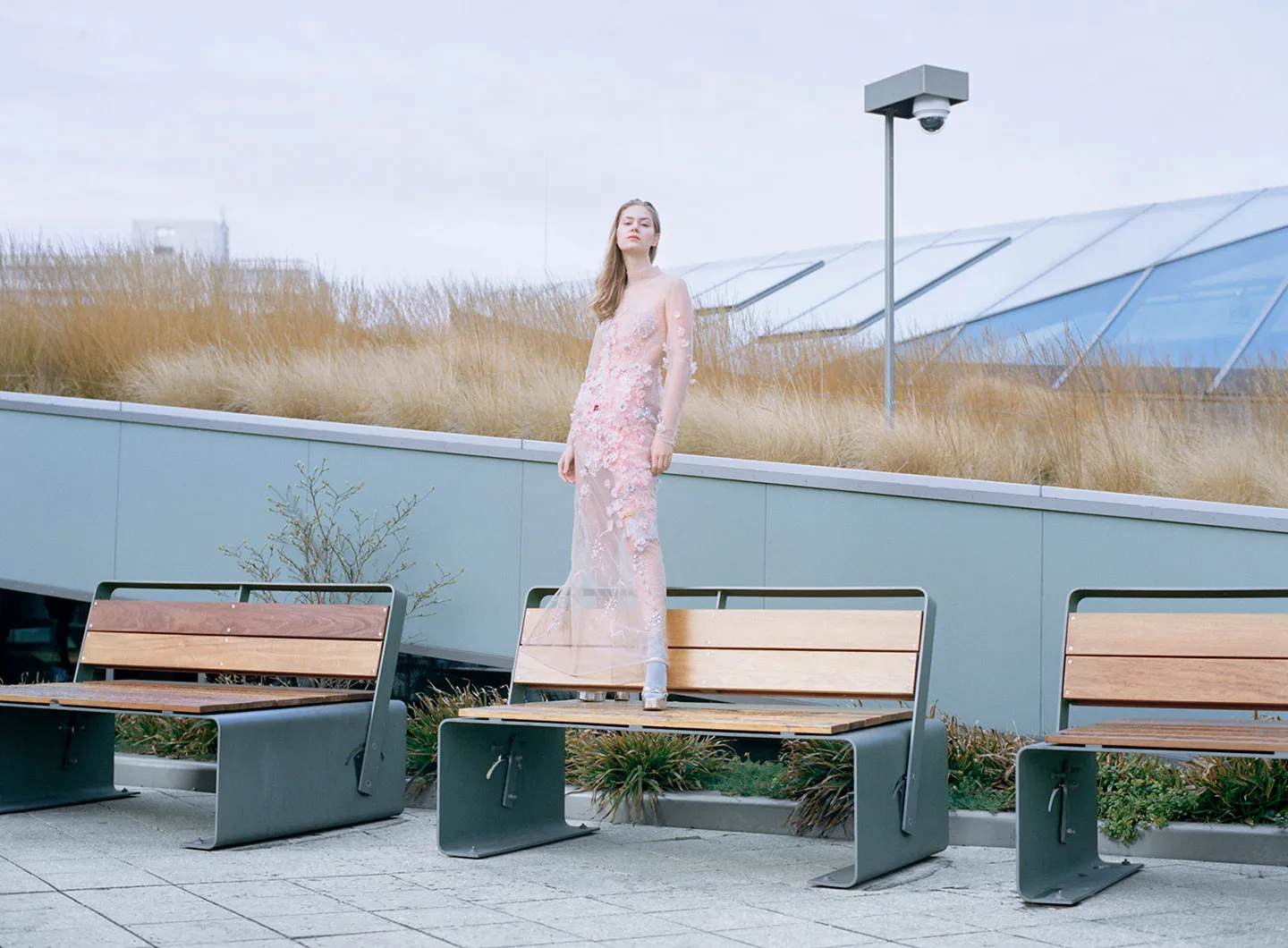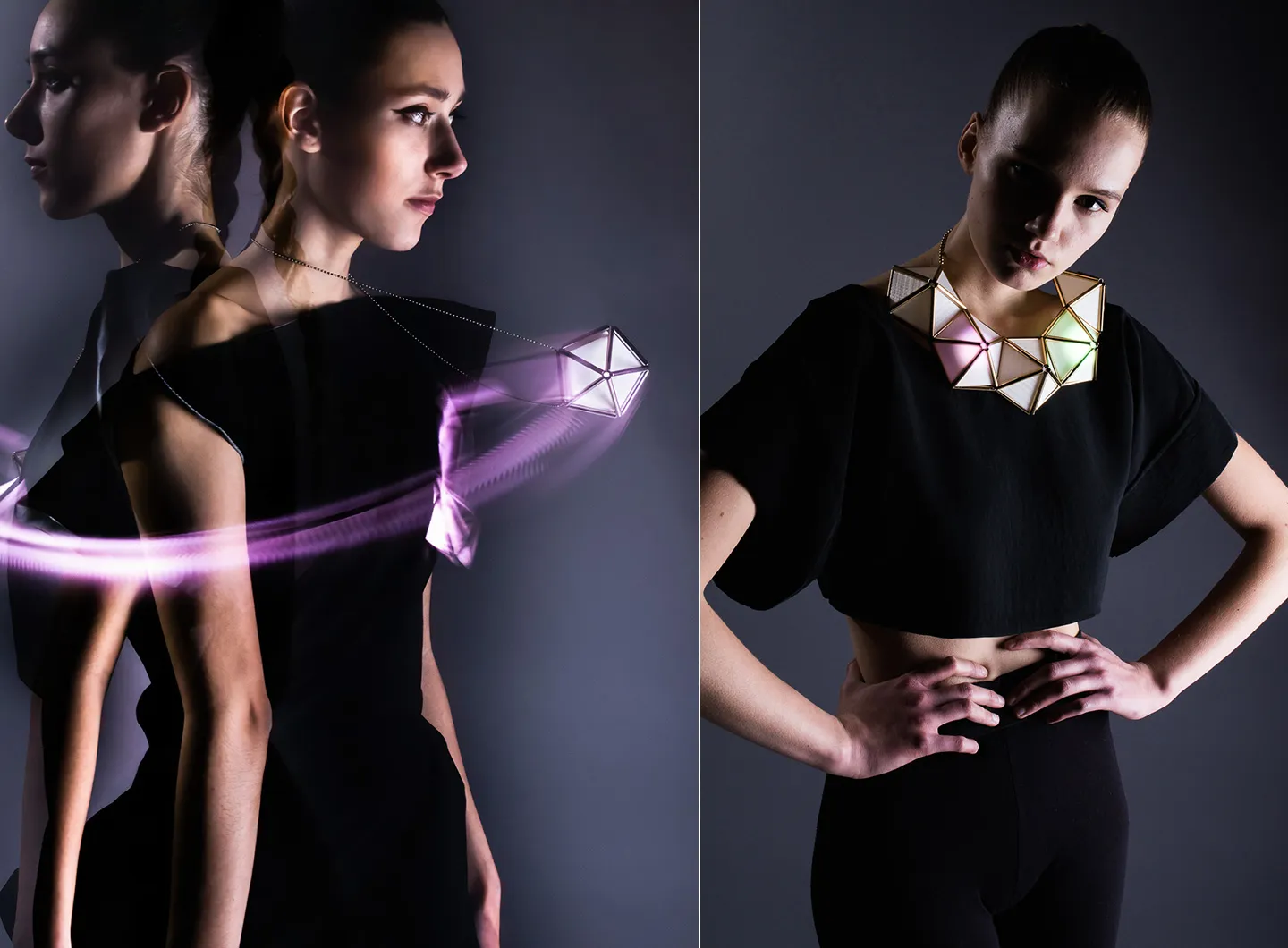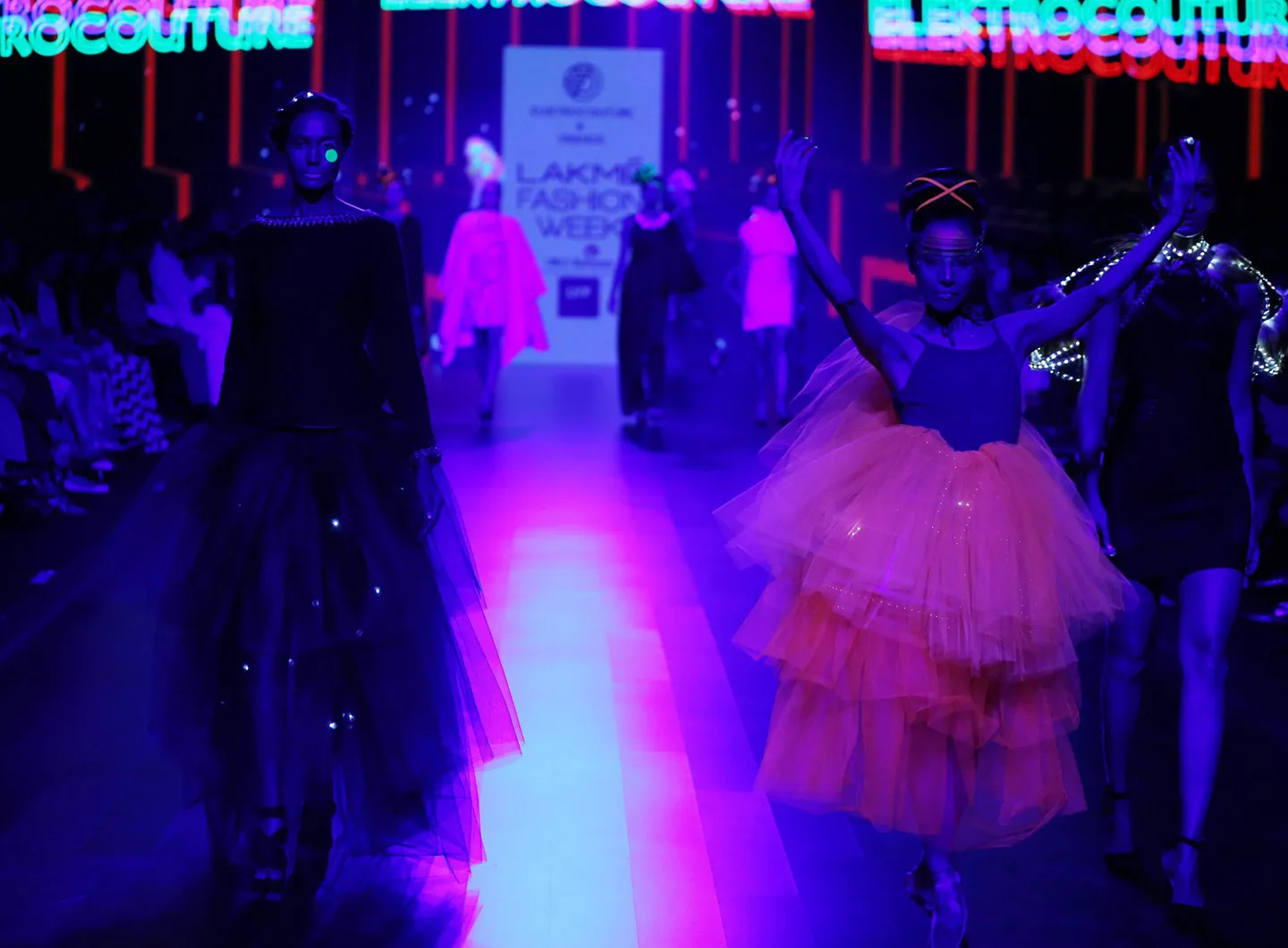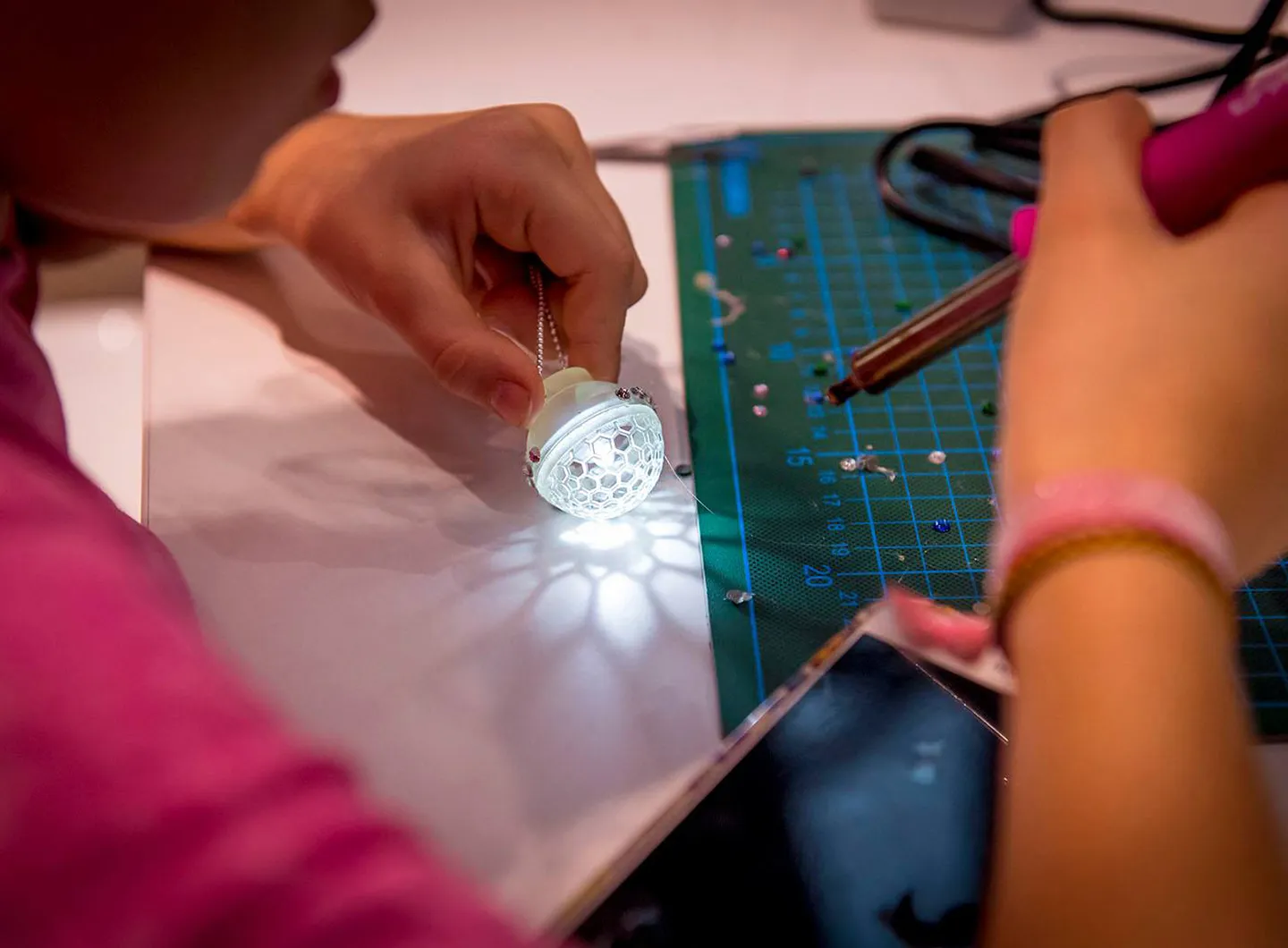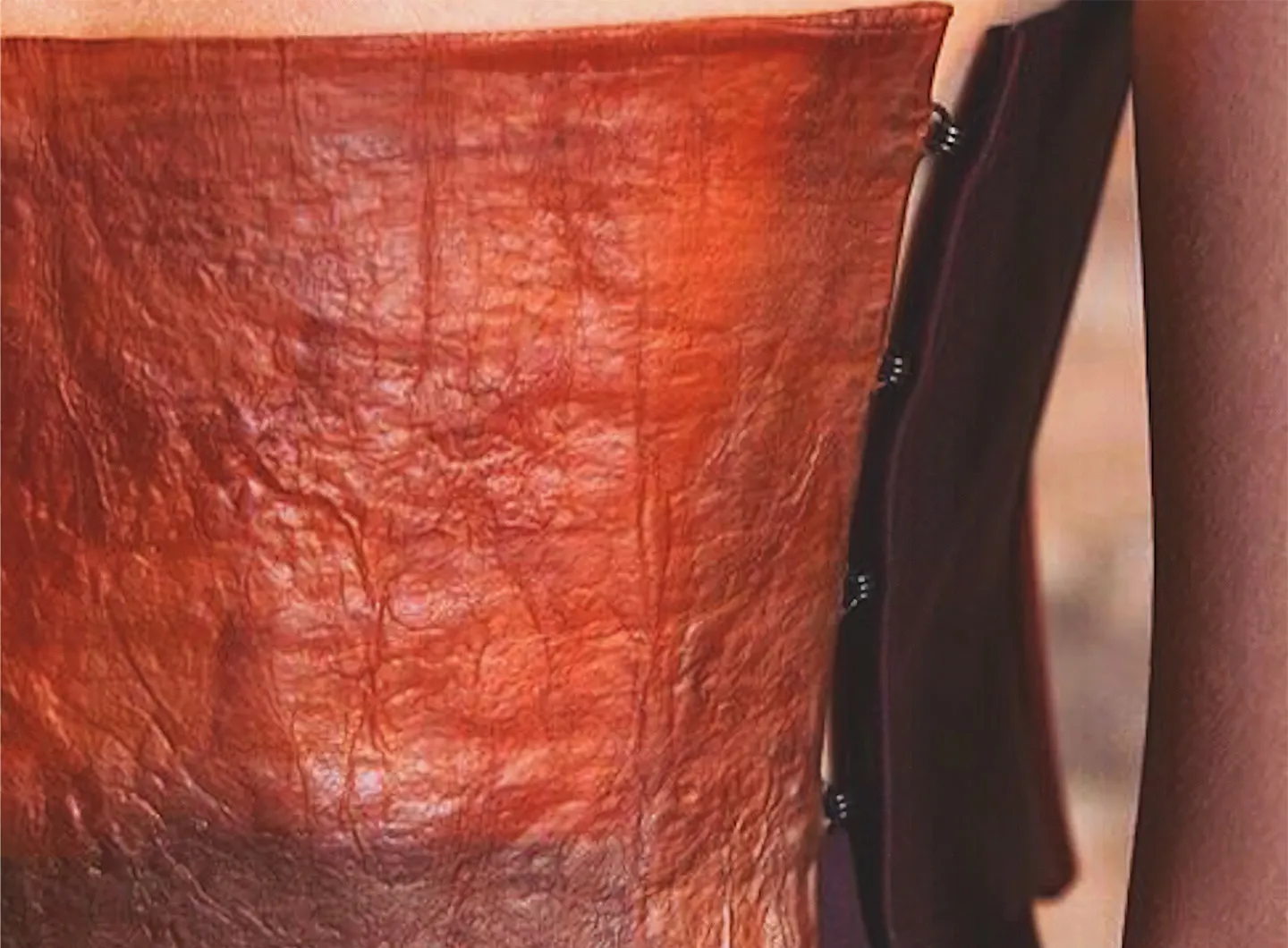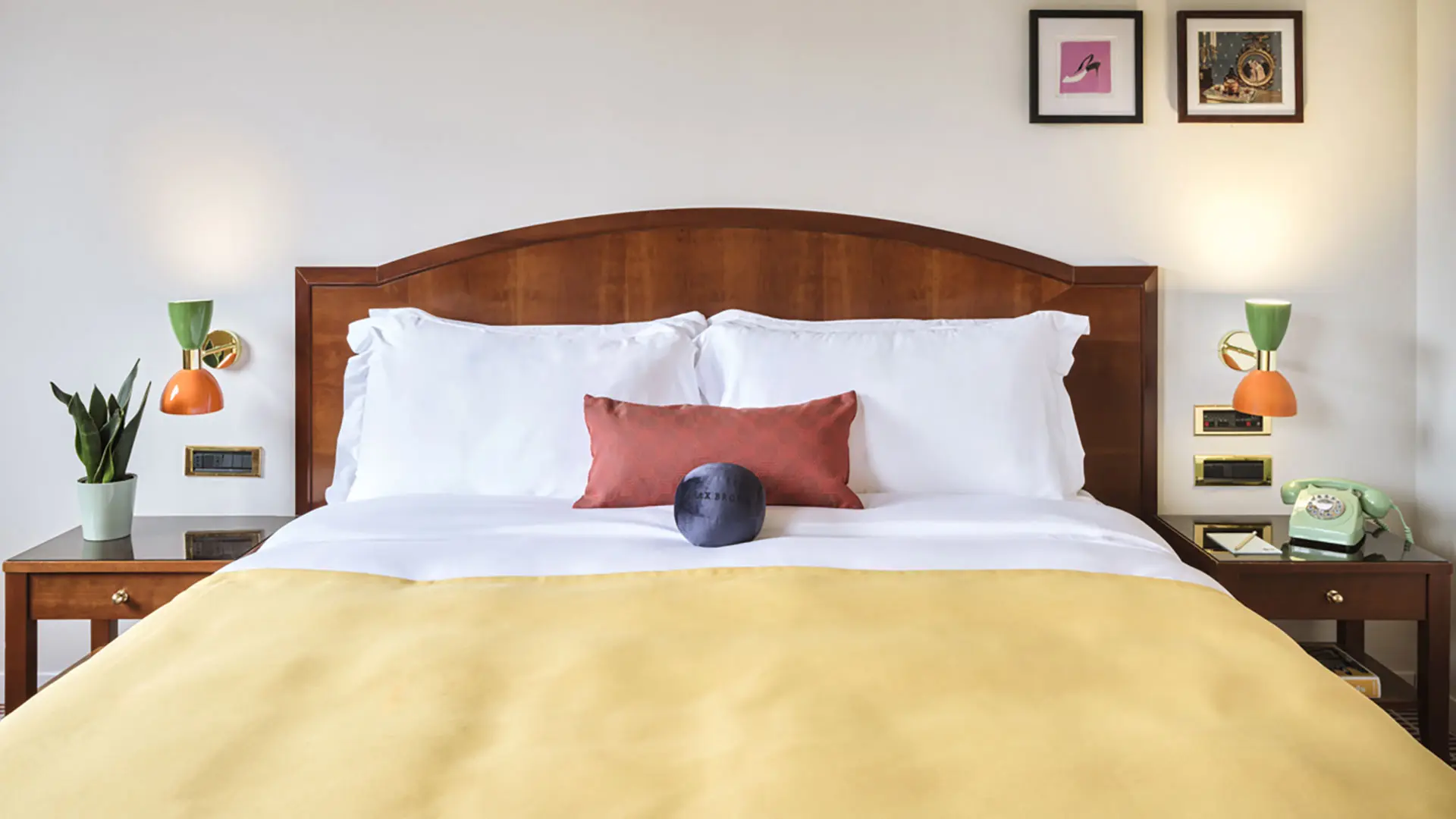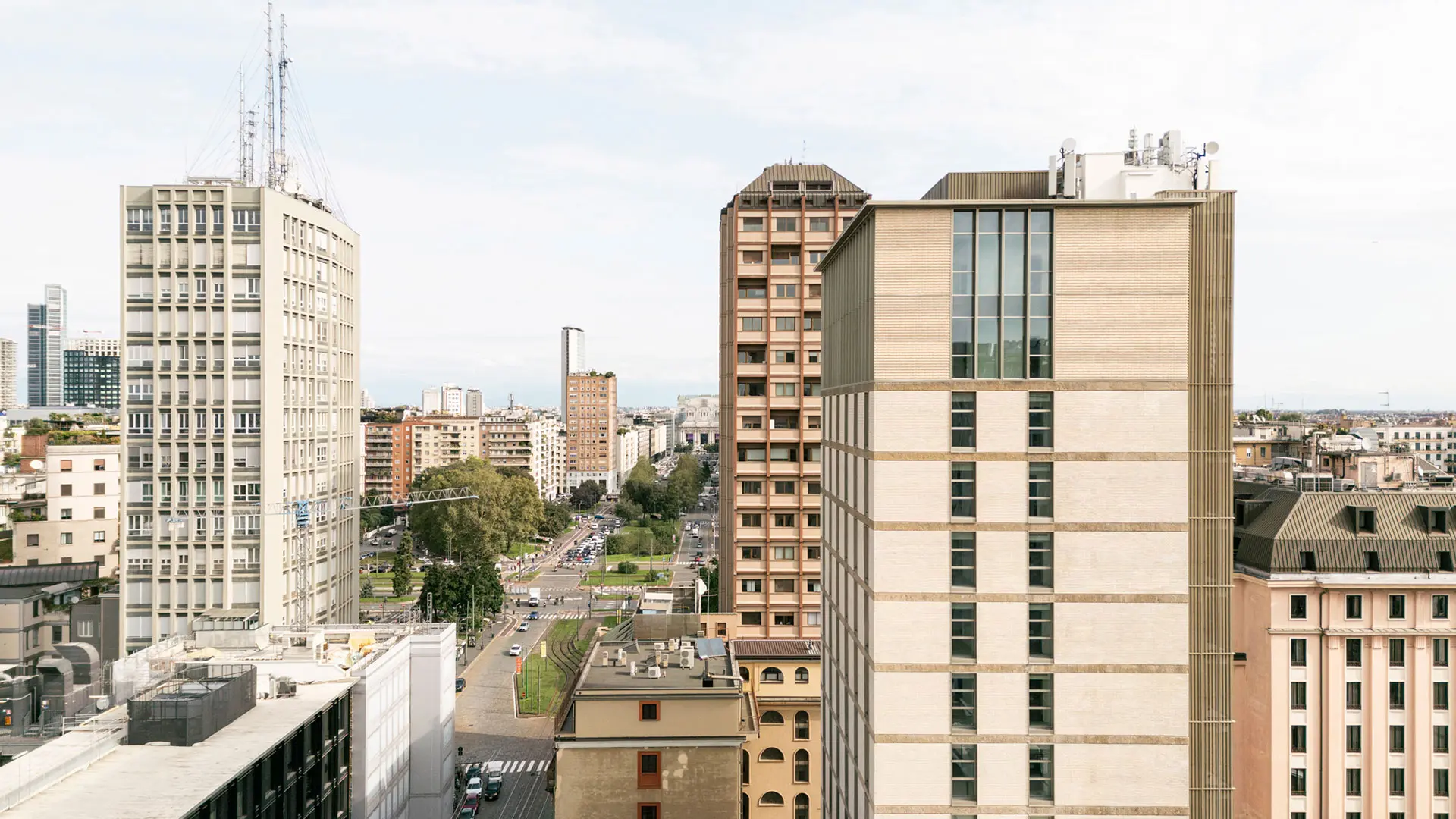In partnership with MiCodmc, a selection of establishments ripe for discovery during the 63rd edition of the Salone del Mobile.Milano, from 8th to 13th April
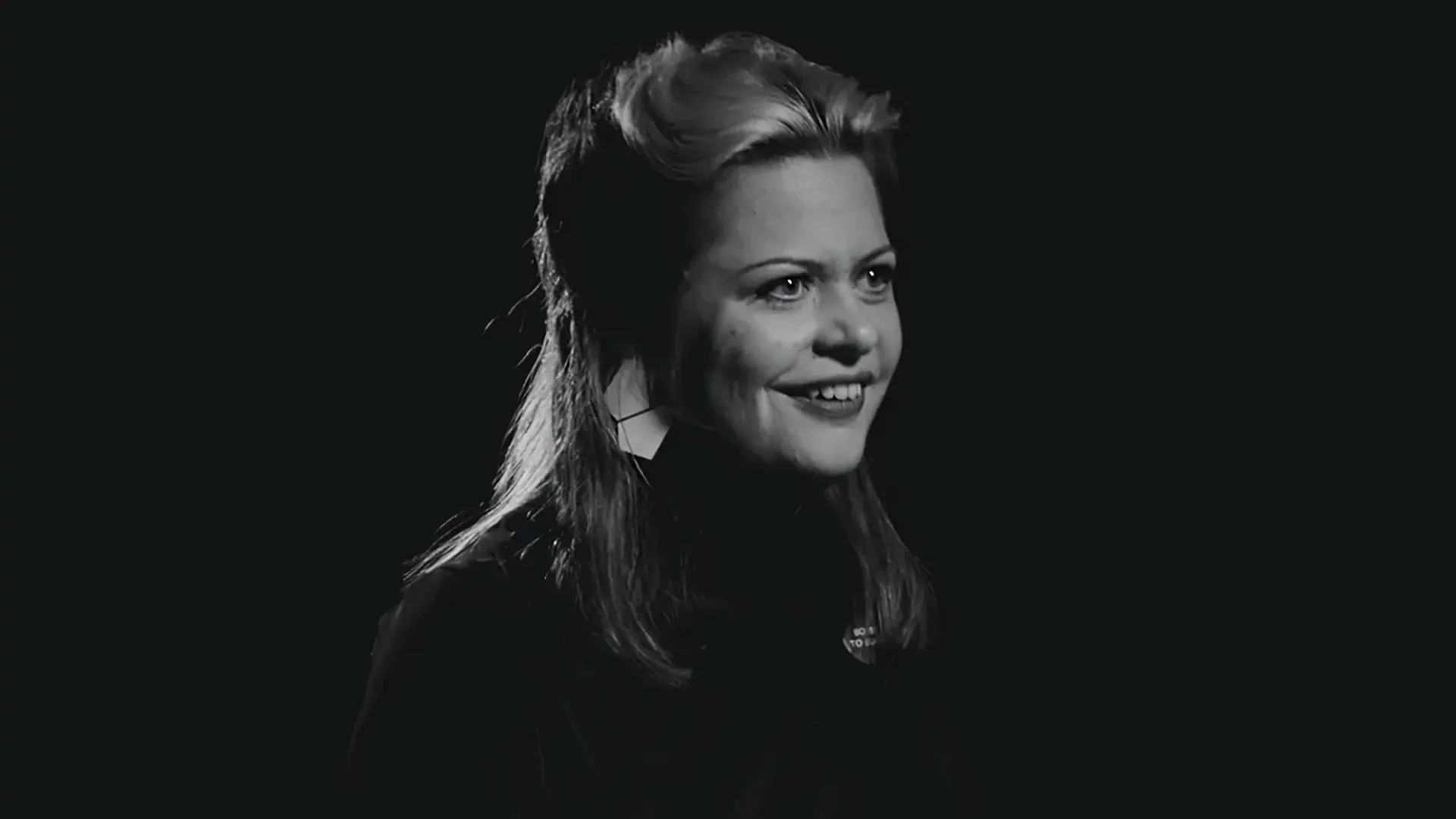
Headshot by Polimoda Firenze, 2019
The queen of wearable tech, she's revolutionised the world of digital technology and new media. Her mission is to bring style to technology.
Listed among the Forbes Europe Top 50 Women in Tech in 2018, and recognised as one of the 100 most influential people in wearable tech, one of the 25 global leaders of fashion and technology, and one of the 50 most important women for innovation and start-ups in Europe, Lisa Lang has revolutionised the world of digital computer technology and the new media, by way of “wearable technology.” She created her first smart jacket while she was European Manager of Twilio, a cloud-based communication platform and Silicon Valley unicom. Right after this, in 2014, she launched the tech fashion brand ElektroCouture, followed in 2017 by ThePowerHouse, a consultancy for fashion and wearable tech, the Internet of Things (IOT), Industry 4.0 and the production of smart fabrics, which also has a research centre, a space for designers and an academy for fashion tech workshops. All of this in Berlin. In 2019 she set up OFundamentO, a project that brings craftsmanship and technology together, spawning new smart and electronic enhanced fabrics for B2B customers. Her mission is to bring technology into style.She also recently launched the master’s in digital Fashion at Polimoda in Florence, an innovative professional training programme for specialists in the digitisation of fashion processes.An international keynote speaker and a supporter of the 2012 Berlin Geekettes (Women in Technology), she is also the organiser of major events (such as the greatest women-only “hackathon,” sponsored by Coca-Cola), educator of programmes for young people (a mentor for Google, H&M Fashion, the European Fashion Council, Techstars, Startupbootcamp, Kryptolab). She has also developed educational tech fashion concepts for a number of Fablabs and for branches of the Goethe Institute the world over.
Everything started with frustration. When I was at home, I was living in several different worlds and realities. I grew up in a family of craftspeople; I grew up in workshops; I grew up doing things with my hands. In fact, I wanted to become a carpenter when I was a kid. I had always loved the pragmatism of artisans and craftsmen, who busied themselves manufacturing and working with materials. But there were no jobs because I come from a region that used to be heavily involved in the textile industry. However, I'm a part of this last generation that just had to leave.
I ended up as a software engineer, which is a funny story. I have always had a huge appetite for photography and exhibitions. But the most important thing for me was getting into university, the MERZ Academy in Stuttgart. Education at my college taught me the Bauhaus principles, that an artist is a maker, and a maker is an artist. At that time, there was nothing like web design or software engineering courses; there was none of that. And my university was one of the first to try to combine art, history and engineering.
Well, in the first semester, we all had to go through all of the courses, and I did video and new media and graphic design. But I had no fucking idea about computers. I usually just broke them, you know? I think that's why the IT support team got to know me very quickly. This was probably also the reason that made me learn to repair computers and get involved with machines; I broke them so often, that afterwards, I felt embarrassed.
But back to the story, I did my first programming course, and it was awesome. I was also fortunate that the head of the faculty of new media was a female Russian programmer, and she is actually one of the first online artists who made art for the internet and made money from it. She was awesome. And she always said to me, "Lisa, this is the future, go. It will be tough, but it is the future."
And of course, I was like the only woman on the course. It was tough; I had no fucking idea what I was doing, and, honestly, I felt lost. So long story short, that's how I ended up in software engineering. I got a scholarship from the German government to do my internship semester. And they were always telling us to go outside of Germany and go to a different country. As I had a family abroad and grew up with postcards from Australia, I traveled for supposedly 6 months to Australia, which became 5 years.
I finished my degree there. And I started working in the so-called tech startup scene. So, there was a whole new scene of like tech startups in AI, and it was kind of like going into the future. That's where I learned networking. That's where I started my future. So I worked as a program manager, and I had a very senior executive job at one of the famous startups. I was the program director, and I ran the publishing department for their educational programming books. So, I needed to be able to organize and kick the techies in the butt, literally. But on the other hand, I was always the woman. The (scary) German woman who got the first female role of any kind of leadership role in the company. So, I was in the tech startup industry, and it was such a male-dominated world. But I never had like a problem working with men because I grew up with construction and design as part of life and always appreciated pragmatism. So, I never had like a problem. If you're young, you don't see it, but like if you get older, you see it more. And I never had like a problem with that also; I could drink them under the table and kick their asses. Easily.
But I always had a very emotional relationship with fashion. And in this industry, even more. Because the scenario of a tech startup's uniform is jeans and t-shirts. And there were very few women working there, but I noticed that we were all similar. And I didn't like it, nor did I want it.
For me, because I had a really tough job, putting on my clothes every morning was like putting on armour. So, I had to rely on that; I felt comfortable in my clothes, yet powerful. And this is what fashion should make you feel, powerful, and above all comfortable in being powerful.
Therefore, I started wearing only dresses, because I said just because I wear lipstick, nail polish and high heels doesn't mean I can't kick your butt tech-wise, and doesn't mean I'm not as good as you.
So that was one thing that really annoyed me. The other thing was that at that time, the first trends in technology were emerging, such as smartphones, fitness trackers and so on. But everything that was associated with technology and fashion was ugly, with no sense of aesthetics, as if it wasn't possible to be beautiful and intelligent at the same time.
So here I was in a situation where, "Okay, I want to look pretty and pretty doesn't mean stupid; pretty means I can look powerful, functional; it supports me, and I can look wonderful and powerful in pink."
I felt all of this, but I didn't know how to unleash it, because I was a huge tech nerd. However, I started doing my research. When I moved to Berlin, I signed up for fun at FabLab, a concept from MIT, where they offered workshops with the machines and gave us access to experiment freely. And for me, it was kind of like coming home, because it just reminded me so much of the smell of the workshops and the timber of the machines.But then there were new smells like laser cutter machines, a 3D printer, and so on...
I spent my whole evenings and weekends at the workshop because I was really happy. It started as a hobby, but it became an obsession, a passion, something that made me feel fulfilled and happy. And I always had an obsession with light, maybe because of the taste for photography, but I loved doing and seeing light in things.
So, long story short, I started improving my techniques and each day that passed, I was more and more excited about everything I was learning.
Until I made my first piece of jewellery. That was the very, very first version of frozen. This is where it all started. I didn't think about it from a business perspective; I did it for myself. I didn't plan to be an entrepreneur; I was always raised to be a good housewife. It just happened.
So, I created a piece of jewellery that glows. And because of my work at the time, I had to attend many events. And this is where it gets funny.
So, I was just wearing my jewellery, right? And when you glow in the dark, people notice you, especially the very few women in the room. So, people went totally nuts over it! Because it was a beautiful piece of jewellery. And it glows and everyone was like "What the fuck?". A lot of people approached me asking if they could buy the piece for their girlfriends. And it was at that moment that I felt fulfilled and realised that yes, we can finally feel beautiful, completely powerful and intelligent at the same time.
We no longer want to receive smart kitchen appliances. We want smart fashion that applies to us.
I also realized that there was still none of this in the market and that this sector was hardly explored. And people liked to see; they liked different pieces and articles.
I started to investigate further and focused on how to improve and give new meaning to fashion. What I noticed is that many traditional industries like music, health, transportation, radio, films, and many others have evolved and innovated over time. The fashion industry, on the other hand, has not innovated for years. We have the idea that fashion is untouchable and exclusive...but it's also very dead. Nothing has happened in fashion. For example, what was the last real revolution? One as big as the sewing machine or the zipper?
So I had this moment of epiphany. It was as if everything slowed down and I heard an angel sing! I thought that there might be something!
That's when it all started and I realized that this was what I wanted...that this was absolutely incredible, fantastic, and made me truly happy and challenged.
So and I got more and more obsessed about it to the point where I talked to my boss and told them about my obsession. I couldn't think of anything else. I couldn't do anything else...so I did it. I told everyone I was going to start my company. Of course, I was afraid and had doubts. However, I never wanted to be associated with a generation that sits on the park bench in their 80's and regrets what they didn't do.
Indeed, the fear of not trying is greater than the fear of failing. So, I jumped off the cliff and just tried. That is entrepreneurship.
On this issue, at this point, it is no longer just about the German government. Now I'm consulting the European Commission. Again, it all happened very naturally. When you start to be very good at a certain subject, and you start obsessing about it, talking about it, learning more and more about the topic, and getting into a way of always talking about it, people start to notice. That's the magic, to go on stage and talk about it.
I talked about it so much, they started to notice and started to think that it might be better to understand and listen to these new ideas, because they represent our future. That's how it all happened.
There is an intersection in politics that is not yet fully prepared for certain terms and inventions. There can be an intersection between two industries, for example, between the fashion and technology industries. There are no rules, no handbooks, no standards and no laws, because there is no knowledge. And for someone like me, who always looks for opportunities in chaos, it is a great place to be.
Therefore, my role, as an expert in the field, is essentially to advise and explain things that are quite complex and complicated, using accessible and simple terms, so that everyone can learn and fully understand. I think that’s why I became such good friends with politicians and policymakers, because they absorb so much information every day, constantly. Just the fact that I make something complex and super scientific into a cocktail story, makes communication easier and simple. I've been consulting politicians and governments for a long time, because these intersections require new strategies, and new policies.
Because the knowledge is there, it is just not connected.
In fact, this is one of ThePowerHouse's jobs today. We publish white papers on very complex things, such as the definition of smart textiles. One of our missions is to inform and help the policy and the commission to find solutions to these innovations. In addition to the European commission and politicians, we also work with and advise museums, research centers and universities.
That's a good question. I'm afraid it's going to be a very long answer.
I absolutely believe, especially in Europe, in the tradition of crafts (women) ship, because they're engineers, you know? They understand how to do things.
In fact, I'm very critical in this matter; I don't appreciate technology startups that claim to be disruptive and forget everything that was built and developed over the years. I find this really inefficient and frankly disrespectful because I grew up in craftsmanship and respect is really important.
I have a huge respect for traditional craftsmanship, because for me, it's art and science together. And in order to invent new products, we do need the knowledge of those craftspeople.
For me, great mixes are like having crazy people and traditional people liking each other and working together on the basis of mutual respect and understanding. And that's actually very efficient, because with that, you can get faster, especially if hardware is hard.
For example, for electronically enhanced jewellery, of course I need a traditional jewellery maker to make the case that uses the precious metal around electronics. I also need a traditionally trained electronic engineer to make the microchip for it.
Because yes, they have to coexist.
And I think, especially for those of European heritage, it's so important to understand that everybody has their own space to shine, and together we are stronger, and I see a lot of opportunities in that intersection.
At the same time, there is an issue we have in manufacturing, especially in high luxury manufacturing. You see, if you go and talk with the factories who work in high luxury, their biggest problem is that they don't have young people coming in and want to learn the trade. They're just so digital-oriented. But what we have to do is find a way to make manufacturing and craftsmanship sexy and accessible to the new generation, because it's so damn fucking cool.
And when you have the old generation with the young generation working together on something, that's beautiful. And that is absolutely European heritage. And that is what we actually should celebrate. But it means both sides have to be open to doing things a little bit differently in order to find each other.
The notion that we have to teach teachers is not true. We have to work with teachers, and if the younger generations realize this, we have a world full of potential.
So, there are two definitions to consider. The first thing we have to understand is the question "What is wearable tech for you?"
Because, if I discuss wearable tech and the use of wearable tech, we probably end up thinking about two different things. For example, your glasses are wearable technology. They were hugely disruptive when they first came out, and glasses were considered a huge invention. Also, slippers are a piece of wearable technology. Pockets are wearable technology. The definition of wearable technology is like adding a function that enhances design and makes life easier.
However, for me, wearable technology and how it's been executed so far isn't all that good. Actually, most of the inventions, fitness tracker stuff and so on, are just very ugly.
And for me, really good wearable technology is also fashionable, even if I wear it if the function is off. It is something that even though it is functional, it is also beautiful, wearable, comfortable, and can even be part of my life in different situations.
Giving things by definitions, art makes you think, design is there to serve, and technology is a tool.
And when everything comes together, it's beautiful. And yes, it is wearable fashion technology. The purpose is to make life simpler but still be beautiful and comfortable.
In fact, we have really good wearable technology. And the issue at the moment is that we have a lot of devices that only do one thing: they solve one problem but also generate another problem. And this is, in my opinion, a cause for getting designers involved. Designers are really good usability experts.
Obviously, people are afraid of evolution. We fear artificial intelligence. There is a notion that machines will take our places, and nobody wants to feel less human. Of course, this is a valid fear; we all feat the unknown.
And this is why designers are now far more important than ever, but it means that we need designers to have an understanding of technology as a tool. So, they need to re-educate themselves. It's exactly the same thing, when the sewing machine came in, it was considered a robot, and there were people burning sewing machines because it was a robot, and they were so afraid.
It's normal now. It is a tool that is already part of the normality that has given us immense potential and helped us to grow.
What happened in 2002 was that technology moved forward and design fell behind. And this is why we had all of those wearable tech gadgets: technology was faster than design. Now what we have to do is make the designer follow this evolution. The fashion industry now is completely stagnant. The new job of the designers will be to create that which is functional, protective and beautiful. And the technology is ready to be explored.
And I'm very, very excited about a new generation of designers; there's a huge new possibility. The future will be that in which technology and design produce wearable tech that helps us to be happier, healthier, more efficient and faster.
For me, I don't care if I have an engineering student or a fashion design student in front of me; the most important thing is to stay openminded. Stay curious. And be aware of what you've learned so far; it might not be entirely useful or applicable in this new time, but be aware of that and be fine with it.
We live in a crazy time where the old rules don't work anymore, where the old handbooks and schoolbooks don't work anymore. If you want to have some impact, you have to make things differently. And to make things differently, you have to be able and open to talking to more different people than you usually would.
Go into a factory, sit next to a machine. Talk to a seamstress, talk to the people who actually make stuff! Go to a farm where they grow cotton. Understand how things get made.
What does the designer do? A designer wanders through the world to go somewhere other people can't. They go somewhere; not everyone can go and bring it back. They leave their comfort zone, live through new experiences.
But that means you have to go outside and do something and have a new experience, so you can bring it back.
And that's what you have to do. And don't expect that all of the success gets served to you on a silver platter. You have to pick up the pieces on your own. You can't expect going into a course to know everything, you have to find knowledge on your own. That's what you now have to do. And no excuses, you have the bloody internet now.
There are no rules.
In fact, do you know why people want rules? Because rules give you an excuse and security. The idea that "As long as you stick to the rules, you will be fine" is the worst ever.
If you really want to make an impact, you have to be okay with feeling uncomfortable, with doing something that will most likely fail. And that you'll get criticized, laughed at, ridiculed; that you'll look stupid. But this is the price you have to pay to do something new.
And then of course, at some stage, there'll be a new set of rules. The rules that YOU create.
What I say is, don't ever get into the spirit of the rules, for God's sake! Because if you just go for a rule for the sake of the rule, it's an excuse.
Short answer: This is not about rules. This is about mindset.
Oh, that is a truly adorable question!
Regarding me, I do not consider myself different from what I am, but there are certain things that are only mine. But one thing is for sure, I love it as I am!
I am passionate; I love to entertain and listen to people. I really like it all very much. I like to have my moments of fun and not worry about other things when I am in my moment of privacy.
I really value my free time. And I like to be alone in my thoughts. Only my husband and friends have full access at these times. I like to be quiet and reflective. I love working! I absolutely love my job. I love watching documentaries about how things are done or historical documentaries. I love watching Antiques Roadshow (so uncool), but I love it all. I just love to learn and absorb new things constantly!
Another interesting fact about me is that at least one day a week, I don't speak. Usually, on Saturdays or Sundays, I don't speak at all. Because I'm like a battery, and obviously, I need a full day of charge!
On the other hand, I love to sit around with friends and have a good laugh and a drink. I love to debate lots of things to do with philosophy. So we go from fingernails to moon landing mystery to conspiracy theories to politics to lemon cake recipes!
I like to touch stones and trees. When we go on holiday, we either go to a historic place (where I can touch old stones) or to a winery or to a mountain. It has to be some place that I can be close to nature.
Yeah, long answer short answer: That’s me.
es, yes, totally! In fact, there's a whole new opportunity for this new kind of technology. It goes far beyond just fashion.
And actually, in a really interesting way, furniture interior design is actually a little bit more ahead than fashion design. This is because the whole definition of smart homes, especially now with lockdown, homeware, furniture, interior design, these industries have become more attractive and important in terms of becoming increasingly intelligent.
So, for instance, several years ago, Microsoft had already filed patents for a smart couch. So, the idea is that you sit on a sofa, and there are sensors in the textiles. And based on a sort of sense, I can actually sense things by the way a person sits. Only by the way of sitting can you know if the one who is sitting is grandfather, grandmother, mother, son, or even the cat.
And it can tell you, if you use it in the right posture, regarding if it is the correct temperature.
I see in luxury furniture a huge opportunity. Because it's the same thing with wearable tech. If you look at all of the Smart Home gadgets, they're becoming nicer. But I think there is a huge opportunity to make technology super high end and still look pretty and beautiful.
And because there is a rule in business: in business, people pay for convenience. So, if I can sit on a couch and don't have to get up to switch off the light, that is great!
In fact, I believe the luxury furniture market has an incredible way to go with technology, and the possibilities are endless. The extra functionality that technology can provide is surprisingly attractive.
This is the luxury people want. An experience of luxury that makes people feel more comfortable and good about themselves. This is luxury. And for me this includes the implementation of technology. And the technology out there now is too damn ugly.
That's why I challenge luxury furniture designers to raise the bar and not be afraid of going through the pain of implementing technology.
In the future, it will pay off.
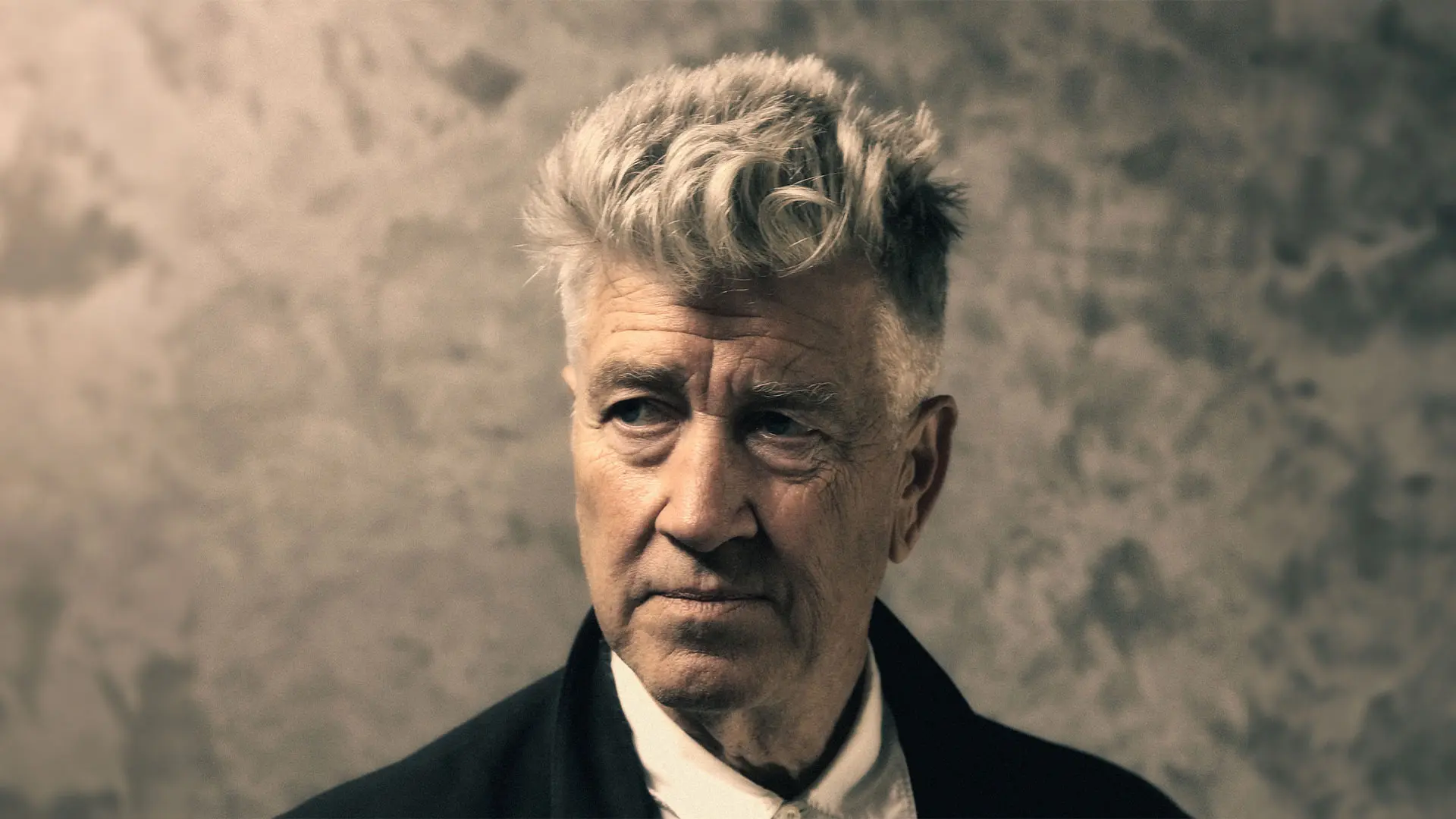
In memoriam: David Lynch
The American director has left us at the age of 78. The Salone del Mobile.Milano had the honor of working with him during its 62nd edition, hosting his immersive installation titled “A Thinking Room”. An extraordinary journey into the depths of the mind and feelings. His vision will continue to be a source of inspiration.



 Stories
Stories
